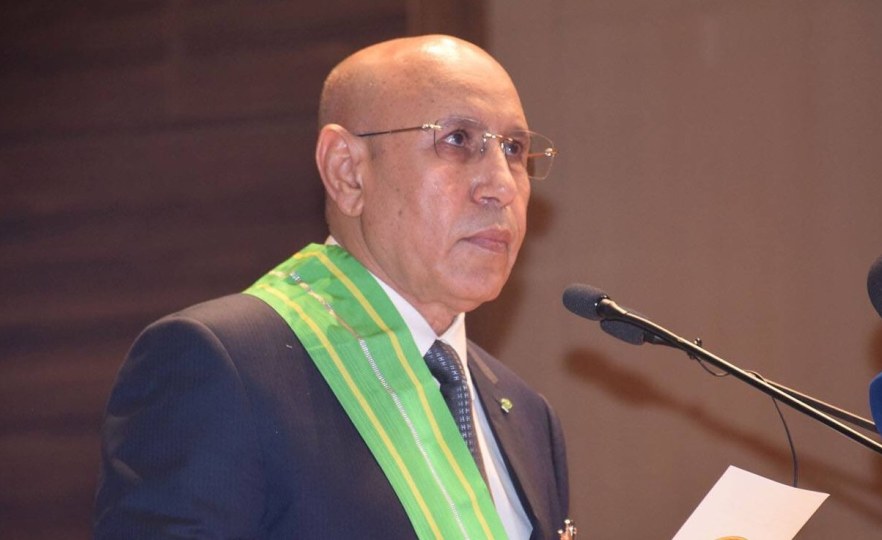Mauritania: Second Chances Through Sport – How Exercise Aids Inmate Rehabilitation

In my job, I work to reintegrate formerly incarcerated people back into society. I often see the harsh conditions they live in, like juveniles being in their overcrowded cells 24/7. I hear about their traumatic experiences while in confinement, including lack of appropriate health care and other physical abuse and injuries during fights. Over the years, their stories have caused me crippling anxiety. To de-stress, I found an escape at the beach, listening to the soothing waves. Not long after, I took up swimming, where I learned breath control, which has since proven effective in coping with the occupational hazards of my profession.
I often think about prisoners who face high mental health issues yet do not have an outlet for the challenges of life ‘on the inside’. Sports could especially be healing and aid with rehabilitation. They can help incarcerated people gain discipline, emotional regulation, and teamwork. Sports in prison are more than just recreational activities; they contribute to reducing recidivism.
In countries like Mauritania, people can spend more than a year in prison without being sentenced. Prison cells are overcrowded, and the situation is getting worse over time. Juveniles are sometimes incarcerated in adult prisons. Due to inadequate sanitary conditions, some inmates have used containers to relieve themselves in Dar Naim Prison. People can be killed while being arbitrarily held in police stations. Soufi Ould Chein, a well-known human rights activist, was assassinated in a police station on February 9, 2023, according to local media.
Even in a country like New Zealand, a relatively wealthy country, there is a mental health crisis behind bars. Here, over one-third of inmates had experienced suicidal thoughts. Alarmingly, more than half of those had attempted suicide—equating to nearly one in five prisoners overall.
This situation is further compounded by the limited access and in some instances complete lack of mental healthcare available to prisoners. In the United States—one of the world’s richest countries, about 3 in 5 people with a history of mental illness do not receive mental health treatment while incarcerated in state and federal prisons.
Solitary confinement makes it worse by causing psychological and profound neurological damage. Among other deleterious outcomes such as hallucinations, paranoia, psychosis, self harm and even suicide.
Favorable mental health outcomes are essential for reintegration of ex-offenders into society as they reduce the rates of recidivism, which in turn reduce future incarceration costs, and improve public safety.
It is possible to improve the mental health of incarcerated persons. One way is through enabling inmates to participate in sport activities.
In Germany incarcerated people who regularly participate in sport activities have significantly better health, including mental well-being, than inactive ones. While they cannot go to the beach or swim like I do, there are innovative and cost-effective alternatives that have been proven to be successful.
The San Quentin Warriors, a group of incarcerated men who formed a basketball team at San Quentin State Prison in California, are another example that sport is one of the best ways to cope with depression, gain discipline, and find hope. One of the inmates, Anthony was once denied parole due to repeated disciplinary violations, but his involvement in structured sports and mentorship programs turned his path around. As a member of the team he developed teamwork skills, self-awareness, and a commitment to personal growth. He later became a certified substance abuse counselor while incarcerated and helped others through peer support and sports coaching. His changed behavior was noted by the parole board, and he was granted release.
Similarly, Rahsaan Thomas joined the Warriors while serving a life sentence and used the opportunity not just to improve physically, but mentally. He was ultimately released and became a respected journalist, co-host of the award-winning Ear Hustle podcast, and a leader in restorative justice efforts.
In Africa, there is the 7-a-side Premier League Program in Kenya at the Kamiti and Naivasha Maximum Prisons where sports has been instrumental in reducing tension and violence. The program has been instrumental in transforming the dynamics between inmates and prison officers. Inmates now often refer to wardens as “teachers,” indicating a shift towards mutual respect and understanding.
The evidence is undeniable. It is therefore imperative that relevant stakeholders including government, prison authorities, nonprofit organizations, mental health professionals, and community members champion and facilitate access to physical activity and mental health support in prisons.
Some may argue that given competing macro-economic priorities, budgetary allocation to prisons should be limited due to the intended punitive nature of the system. Nonetheless, the criminal justice system must shift approaches from complete punishment towards rehabilitative justice. This will require financial and technical expenditure, with a long-term return on investment. Adressessing the slow processing of cases, and overcrowding must remain a priority. Individuals must also have access during incarceration to mental health support and rehabilitative programs that would prepare them for reintegration into society.
The cost of inaction is far more expensive in monetary terms, it extends to human lives, lost potential, and cycles of suffering that ripple far beyond prison walls. Mental health needs do not stop at the prison gates, and neither should our compassion or responsibility.
By Kerim Youba



